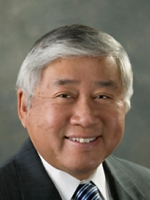The Department of Homeland Security (DHS) has announced the publication of two proposed rules, one to extend employment authorization to spouses of certain H-1B workers and the other to enhance opportunities for certain groups of highly skilled workers by removing obstacles to their remaining in the United States.
Under existing regulations, DHS does not extend employment authorization to H-4 dependents of H-1B nonimmigrant workers. The change proposed by DHS would allow H-4 dependent spouses of certain H-1B workers to request employment authorization, as long as the H-1B worker has already started the process of seeking lawful permanent residence through employment.
The second proposed change would update the regulations to include: nonimmigrant high-skilled specialty occupation professionals from Chile and Singapore (H-1B1) and from Australia (E-3) in the list of classes of aliens authorized for employment incident to status with a specific employer; allow E-3, H-1B1 and CW-1 (Commonwealth of the Northern Mariana Islands) nonimmigrant workers up to 240 days of continued work authorization beyond their current expiration while a timely filed extension request is pending; and expand the current list of evidentiary criteria for employment-based first preference (EB-1) to outstanding professors and researchers.
L-1 Site Visit Program
The Office of Fraud Detection and National Security (FDNS) of USCIS has announced the implementation of its L-1 site inspection program. The program is designed to complement DHS's existing anti-fraud efforts. FDNS will begin with L-1A managers and executives with extensions of stay approved by USCIS and eventually add L-1B employees, also with USCIS-approved extensions. FDNS will not be reviewing L-1s based on blanket petitions.
H-1B Cap Update
USCIS has announced that it received enough H-1B petitions to reach the statutory cap for fiscal year 2015, beginning on October 1, 2014. On April 10, 2014, USCIS announced that it had received 172,500 petitions and that it had completed its random computer selection process. Petitions that were not selected in the lottery (more than half) are being returned with the filing fees.
BALCA on 'Infeasibility to Train'
In a decision favorable to employers, the Board of Alien Labor Certification Appeals (BALCA) has found that where the employee gained the required experience while working for the employer, the employer's detailed statement sufficiently documented that it was no longer feasible to train a new worker for the position. Therefore, BALCA overturned the certifying officer's denial of the PERM labor certification.
Revised Medical Exam Policy
On May 30, 2014, USCIS announced that effective June 1, 2014, adjustment-of-status applicants will no longer be required to file Form I-693, Report of Medical Examination, as initial evidence with an application. Form I-693 must still be submitted within one year of completion and signature by the civil surgeon and will be valid for one year after submission to USCIS. USCIS said it will address questions and provide guidance on June 12, 2014.





 i
i


